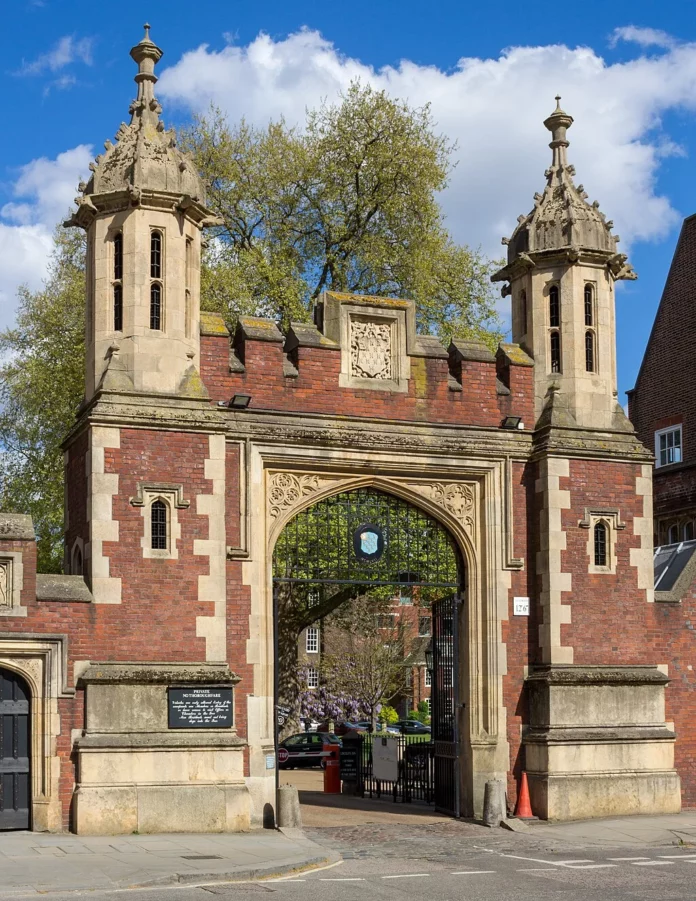Lincoln’s Inn, one of England’s most prestigious legal institutions, has abandoned its centuries-old tradition of saying Christian grace before meals at ceremonial events, replacing it with a secular expression of “thanks.” The inn’s decision to distance itself from the Anglican faith was announced last September. (Lincoln’s Inn is one of four English “Inns of Court,” professional associations to which English and Welsh barristers must belong before practicing law, akin to state bar associations in the United States.)
In light of the change, Christian grace will still be recited at the inn’s lunch following its Sunday chapel service but will otherwise be omitted from ceremonies. By eliminating Christian elements from its events, officials at the inn, founded by Christian lawyers in 1422, express a desire to accommodate people of other faiths, especially Islam.
Lincoln’s Inn’s Master of the Rolls, Sir Geoffrey Voss, said that the decision was made to “foster inclusivity,” “modernize,” and “create a more thoughtful environment” at the chapel, for which English poet and preacher John Donne laid the foundation stone in 1620.
The organization’s departure from the centuries-old tradition of saying Christian grace before celebratory meals comes after it introduced readings from the Qur’an in some of its chapel services, which previously included only readings from the Christian Bible. An Order of Service from the inn’s official Anglican chapel, obtained by Focus on Western Islamism (FWI), reveals that Qur’an passages have been used in Call Day services, which celebrate student members being called to the Bar and receiving the title of Barrister, since at least November 2023. The document includes Qur’an passages 4:135 and Qur’an 8:8. In March 2023, a member of the inn shared a video of himself reciting from the Qur’an during a service in the chapel, confirming the use of the Islamic scripture at a putatively Christian ceremony.
Muslims Apply Pressure
One former member told FWIthat several members and students at the inn had requested that clergy at the inn’s chapel refer to God as “Allah” in its services, although this was apparently refused. The ex-member, who wished to remain anonymous, explained: “Obviously Arabic-speaking Christians do refer to God as ‘Allah,’ but asking for this term to be used in an English-speaking Protestant service makes no sense, and I would assume it was a request made by Muslim members rather than Christian ones.”
“It is clear that the chapel’s inclusion of non-biblical readings and the request to refer to God as ‘Allah’ happens because members at the inn are increasingly affluent students from Muslim-majority countries such as Pakistan and Malaysia, where attitudes toward free speech and faith are miles apart from the standard in Britain,” the member argued, adding: “The Qur’an passages used in the Call Day Service discussed justice, mercy, and compassion, concepts on which Christian theology has its own views, which the Church of England purports to believe in as absolute truth. Why not use biblical readings instead?”
“Having the Qur’an read in the Call Day services seems even more absurd when you consider that the vast majority of international students from Muslim-majority countries will not go on to practice law in this country,” the member said. “Call Day is the only time many of these students visit the inn, so why should the service be changed to suit them?”
Fresco Fracas in the Offing?
The member also suggested the inn was ripe for further religious controversy, sparked by the hardline Islamist views of some students, especially regarding the inn’s semicircular fresco of historic lawgivers, which includes a pictorial depiction of Muhammad. “During lunch in the Great Hall, a guest and I overheard a member loudly complaining to another member and guests about how the depiction of Muhammad in view on the nearby wall was offensive and ought to be removed,” the member told FWI.
“At the moment, I think many students simply don’t realize that Muhammad is depicted in the mural, but it is easy to see how the image could become a more intense focus of contention,” the member said.
A spokesperson for the group told FWI that “As part of the inn’s wider activities on Call Days for a student body of a wide variety of faiths and none, it has been our practice for a number of years to have an optional Christian service in chapel where there are readings for reflection on Justice, Mercy and Compassion from the three Abrahamic faiths.”
Read it all at the Middle East Forum’s Focus on Western Islamism










